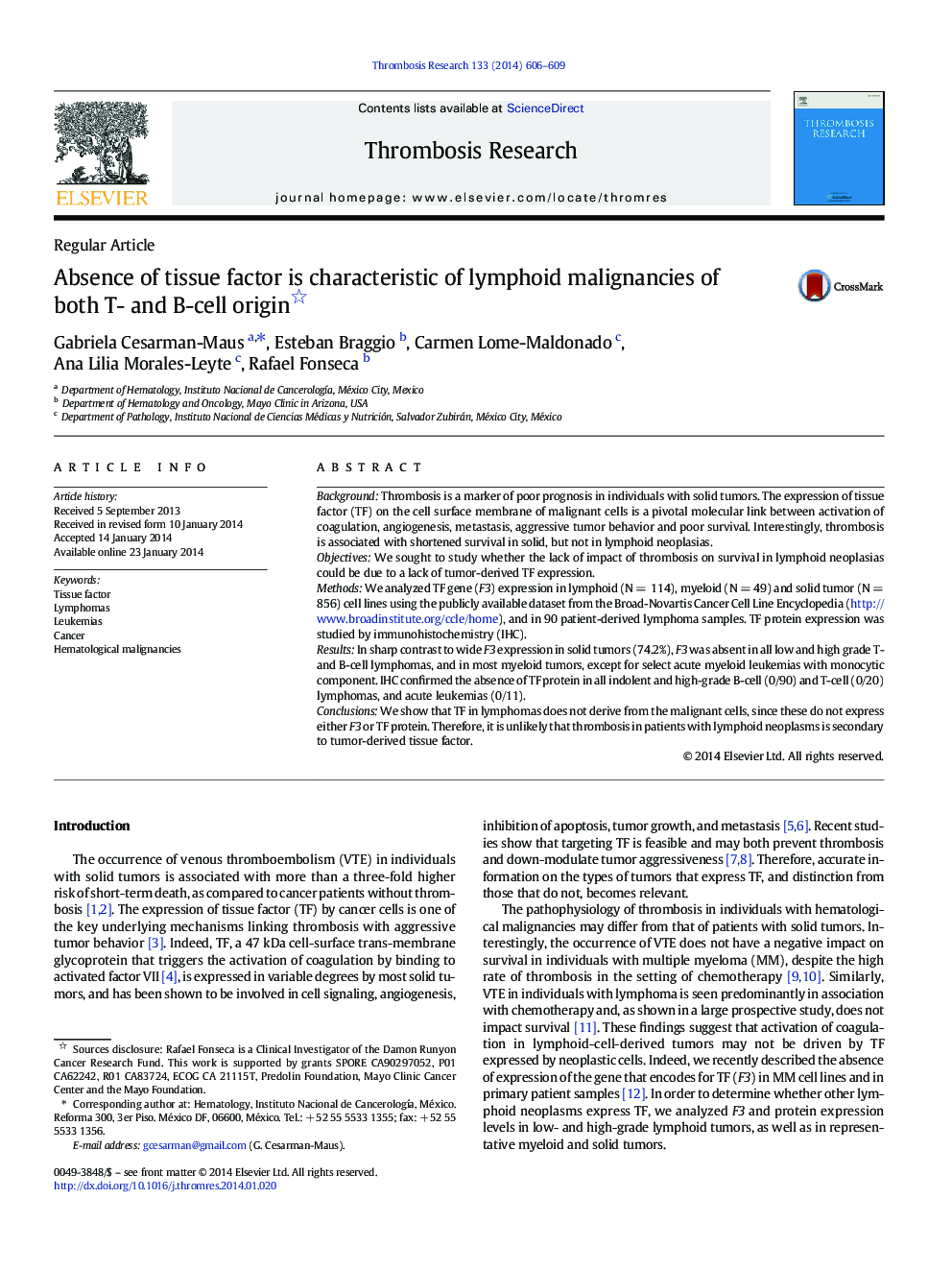| Article ID | Journal | Published Year | Pages | File Type |
|---|---|---|---|---|
| 6001396 | Thrombosis Research | 2014 | 4 Pages |
BackgroundThrombosis is a marker of poor prognosis in individuals with solid tumors. The expression of tissue factor (TF) on the cell surface membrane of malignant cells is a pivotal molecular link between activation of coagulation, angiogenesis, metastasis, aggressive tumor behavior and poor survival. Interestingly, thrombosis is associated with shortened survival in solid, but not in lymphoid neoplasias.ObjectivesWe sought to study whether the lack of impact of thrombosis on survival in lymphoid neoplasias could be due to a lack of tumor-derived TF expression.MethodsWe analyzed TF gene (F3) expression in lymphoid (NÂ =Â 114), myeloid (NÂ =Â 49) and solid tumor (NÂ =Â 856) cell lines using the publicly available dataset from the Broad-Novartis Cancer Cell Line Encyclopedia (http://www.broadinstitute.org/ccle/home), and in 90 patient-derived lymphoma samples. TF protein expression was studied by immunohistochemistry (IHC).ResultsIn sharp contrast to wide F3 expression in solid tumors (74.2%), F3 was absent in all low and high grade T- and B-cell lymphomas, and in most myeloid tumors, except for select acute myeloid leukemias with monocytic component. IHC confirmed the absence of TF protein in all indolent and high-grade B-cell (0/90) and T-cell (0/20) lymphomas, and acute leukemias (0/11).ConclusionsWe show that TF in lymphomas does not derive from the malignant cells, since these do not express either F3 or TF protein. Therefore, it is unlikely that thrombosis in patients with lymphoid neoplasms is secondary to tumor-derived tissue factor.
